GROUP C – International Relations
Paper XIII-Contemporary Issues in International Law – I
1) Nature of International Law
2) Sources
3) International Legal Personality and Recognition
4) International Human Rights Law
5) Territional Sovereignty.
OR
Paper XIII -International Organization – I
The course examines the role of the International Organization in contemporary global political system.
1) Approaches to that study of International Organization.
2) Overview of the evolution of International Organizations: The Historical Context.
3) The United Nations Organization: Structure and function. (Institutions / Political Processes).
4) The U.N. and the Decolonization process.
Paper- XIV Indian Foreign Policy – I
1) Genesis and foundation of Indian foreign policy: principles and objectives
2) Emerging patterns of post-war world politics: India’s perspectives
3) Political process and foreign policy
4) India and the major powers: USA, China, Britain, France, and Russian Republic
5) India’s perspectives
(i) Disarmament and arms control: NPT, CTBT etc
(ii) Globalisation and WTO, Kyoto Protocol and environmental protection
Paper – XV Conflict Resolution & Peace: Pedagogy & Approaches
1) Anatomy & Sources of Conflict
2) Positive Peace: Structural & Cultural Violence
3) Conflict Handling Mechanisms: Conflict Suppression, Conflict Management, Conflict Resolution, Reconciliation
4) Gandhian Approach & its offshoots: Satyagrah, Jai Jagat
5) Confidence Building Measures: India –Pakistan as a Showcase
Group – D Comparative Governments
Paper XIII: Government and Politics in Japan
1) Constitutional Framework – New Constitution
2) Role of the Emperor
3) Structure and Process of the Government – Prime Minister, Cabinet, Legislature & Judiciary
4) Bureaucracy & Local Government
5) Political Parties and Pressure Groups
Paper XIV: Government and Politics in Russia
1) The Constitutional Development
2) Institutional Structure in the Political System: The Presidency; Federal Assembly; Judiciary.
3) Party System
4) The Electoral Process
5) Nationalism, Regionalism and Federal System in Russia
6) Economic Transition and the Role of the Market
Paper-XV Government and Politics in Pakistan
1) Genesis of Pakistan
2) Constitutional Development
3) Structure of Government: Executive, Legislative, Judiciary.
4) Political Parties
5) Nation Building
6) Problems and Democracy
Group E – South Asian Studies
Paper-XIII Government and politics of South Asia – I
(India, Pakistan and Bangladesh)
1) Geopolitical realities and historical background of South Asia
2) Socio-economic structure of South Asian countries
3) Constitutional and political development since the Second World War
4) Basic nature of political system of South Asian countries
(i) Army in the politics of Pakistan and Bangladesh
(ii) Democratic and monarchical systems
Paper-XIV Foreign policies of South Asian states- I
(India, Pakistan and Bangladesh)
1) Key determinants and objectives of foreign policies of South Asian states
2) Foreign policies of South Asian states in the post Second World War
3) Inter-regional conflict and intra-regional interactions
(i) Kashmir
(ii) Rann of Kutch
(iii) Farakka
(iv) Ethnic conflicts
Paper-XV Nation Building In South Asia-I
(India, Pakistan and Bangladesh)
1. The narrative and dynamics of nation-building in South Asia
(i) Contextualising the two-nation theory and partition
(ii) Nation-building and the project of national integration
2. Democracy and its discontent: Challenges of strange multiplicity
(i) Pluralism vs the multicultural debate
(ii) Secularism, communalism and regionalism (the problem of language, caste and religion)
3. Challenges to the nation-state
(i) Politics of recognition and the question of autonomy, self-determination and subnationalism.
skip to main |
skip to sidebar
Get the latest free guess papers of class 8th, 9th, 10th, FA, FSC, BA, BSC, MA, MSC, MCOM, BCOM, MIT, PGD-It, and Other Classes of Punjab University and Others Colleges and Boards of Pakistan India and Bangladesh
MORE GUESSPAPERS and NOTES
197 MUSIC
221 BIOTECHOLOGY (878)
A level Latin
A-level ACCOUNTING 0452/01 Paper 1 Multiple Choice May/June 2009
A-level FIRST LANGUAGE CHINESE 0509/02
A-level Pakistan Studies 2006
A-level PHYSICS Paper 3 Extended 0625/03
BA Economics
BCOM PART 2 ADVANCED ACOUNTING
BCOM PART 2 BCRW
BCOM PART 2 BUSINESS LAW
BCOM PART-2 AUIDITING
BCOM-II Economics
BCOM-PART 2 BUSINESS TAXTATION
BCOM-PART 2 COST ACCOUNTING
BIOTECHOLOGY (878)
CA Foundation Course GDP n GNP
CA Free Markete Economy
CA important questions
CA Notes Scarcity and Choice
CA Notes UNIT 3.1 NATIONAL INCOME
CA Notes UNIT 3.2 GOVERNMENT AND THE ECONOMY
CA Notes UNIT 3.3 FISCAL POLICY
CA Notes UNIT 3.4 MONEY MONETARY POLICY
CA Notes UNIT 3.5 CAPITAL
CA Notes UNIT 3.6 INTERNATIONAL TRADE
CA Solved Assignments
CBSE Science - Chap 1 - Crop Production And Management - Page 13 - Q 1
CBSE Syllabus Class 9 - English (Communicative )
CBSE Syllabus of English Language And Literature for Class 9th For March 2009 Examination ENGLISH - LANGUAGE AND LITERATURE (Code No. 184)
CBSE Syllabus of Mathematics for Class 9th For March 2009 Examination Course Structure Class IX | Mathematics
CBSE Syllabus of Science And Technology for Class 9th For March 2009 Examination COURSE STRUCTURE CLASS IX | SCIENCE (THEORY)
CBSE Syllabus of Social Science for Class 9th For March 2009 Examination COURSE STRUCTURE Social Science | CLASS IX
Class X BIOLOGY GUESS QUESTIONS FOR SSC
Class X SOCIAL PAPER 1 GUESS QUESTIONS - - - - -
Class X Social Studies Question Paper
COMPUTER SCIECE (868)
COST AND REVENUE
Economics Solved Assignments
ELECTRICITY A D ELECTRO ICS (866)
Empirical and Molecular Formulas
EVIROMETAL SCIECE (877)
FASHIO DESIGIG (865)
GEOMETRICAL AD MECHAICAL DRAWIG (869)
Guess Paper – 2010 Class – X Subject –Chemistry (Equations)
Guess Paper – 2010 Class – X Subject – English Paper - I
IMPORTANT QUESTION CA
INDIAN CERTIFICATE OF SECONDARY EDUCATION EXAMINATION
INDIAN SCHOOL CERTIFICATE EXAMINATION
ISC MODEL EXAMII\ATION 2OTO CLASS XII MATHEMATICS
LATIN 0480/02 Paper 2 Literature May/June 2009
LITERATURE IN ENGLISH 2010/01
Managerial Economics Notes UNIT 3.1 THE SCOPE OF MANAGERIAL ECONOMICS
Managerial Economics Notes UNIT 3.2 RISK ANALYSIS RISK AND UNCERTAINTY IN MANAGERIAL DECISION MAKING
MARCH 2010
MARK SCHEME for the May/June 2008 question paper 2059 PAKISTAN STUDIES
MCOM Notes UNIT 1 DEFINITION AND BASIC CONCEPTS
MCOM Notes UNIT 1.5 PRODUCER BEHAVIOUR
MCOM Notes UNIT 1.6 THEORY OF THE FIRM
MCOM Notes UNIT 2.1 NATIONAL INCOME
MCOM Notes UNIT 2.2 INFLATION AND BUSINESS CYCLE
MCOM Notes UNIT 2.3 BALANCE OF PAYMENT AND EXCHANGE RATES
MCOM Notes UNIT 2.4 MONEY AND BANKING
Model Question Paper B.A. (Hons.) English Entrance Test
MS 01 Management Functions and Behaviour
MS 02 Management of Human Resources
MS 06 Marketing For Managers
MS-05 Management of Machines and Materials
O-level ACCOUNTING 0452/01 Paper 1 Multiple Choice May/June 2009
Pak Studies Ch 8 Chapter Name: Industry of Pakistan.
Paper BA Economics B
PHYSICAL EDUCATIO (875)

